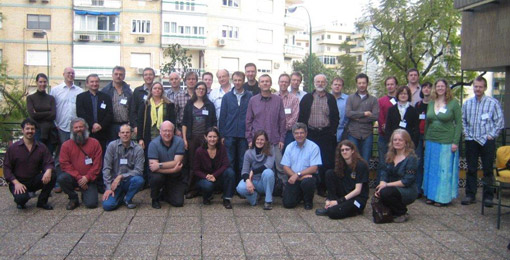Halting biodiversity loss is a key international priority, and central to the CBD and EU policy. The majority of global (and European) biodiversity is made up of insects and other invertebrate taxa, but little is known of the distributions and abundance of most such species, and even less is known about their dynamics and the threats they face. This ignorance concerning the status and trends of the majority of Europe’s species is worrying, but it is even greater concern for species that play important functional roles, such as pollinators. Pollination is an essential ecosystem service, vital to the maintenance both of wild plant communities and agricultural productivity. These pollination services depend on both domesticated and wild pollinator populations, and both may be affected by a range of recent and projected environmental changes, with unknown consequences.
The project Status and Trends of European Pollinators (STEP) will document the nature and extent of these declines, examine functional traits associated with particular risk, develop a Red List of important European pollinator groups, in particular bees and lay the groundwork for future pollinator monitoring programmes. STEP will also assess the relative importance of potential drivers of such change, including climate change, habitat loss and fragmentation, agrichemicals, pathogens, alien species, light pollution, and their interactions. STEP will measure the ecological and economic impacts on declining pollinator services and floral resources including effects on wild plant populations, crop production and human nutrition. It will review existing and potential mitigation options, providing novel tests of their effectiveness across Europe. The work will build upon existing datasets and models, complemented by spatially-replicated campaigns of field research to fill gaps in current knowledge. STEP will integrate the findings into a policy-relevant framework, creating Evidence-based Decision Support tools. It will also establish communication links to a wide range of stakeholders across Europe and beyond, including policy makers, beekeepers, farmers, academics and the general public. Taken together, the research programme will improve our understanding of the nature, causes, consequences and potential mitigation of declines in pollinator services at local, continental and global scales.




